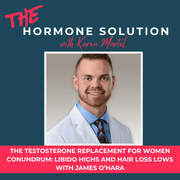Well, one of the reasons why a lot of people fail to achieve their weight loss goal is because they are insulin resistant. So it’s not always about overeating or under exercising.
This is why it is important to test for insulin resistance if you are trying to lose weight. However, the good news is that you can actually reverse insulin resistance through the right diet and exercise program. Not only that, but you can also help reverse this condition with the help of supplements and fasting methods.
What is Insulin? Insulin is a hormone that delivers a message to the cells to take glucose out of the blood to use for energy. It binds to the receptors on the cell surface to form a key-lock association.
So the more glucose you consume, the more you stimulate insulin production. Besides, any type of carb you consume is capable of raising your blood glucose and insulin levels- whether its bread, brown rice, oats, or other carb types.
Food substances like proteins and fats are also capable of raising blood glucose levels, but not as much as carbs do.
Now, when you eat more carbs, your cells take in what they need, and the excess glucose is stored as glycogen in your liver. However, the liver has its holding capacity for glucose, so when it can’t take anymore, the sugars are converted into fats and stored in your body.So insulin is actually a storage hormone, and the more food you eat, the more you produce this hormone. Remember this,“high levels of insulin in your body boosts sugar and fat storage, and low levels encourage glycogen and fat burning.” That’s the major reason why diets like the ketogenic diet result in weight loss because your body derives its energy from burning fat.
What is Insulin Resistance? Insulin resistance is the inability of your body to convert excess glucose for energy. This condition is one of the worst hormonal dysfunctions that can hinder weight loss.
When you eat an excess of carbs, more glucose is released into your bloodstream, and your body soon becomes unable to pull in more glucose into the cells.
At this point, more insulin is released from the pancreas to stimulate the cells to take in more glucose, but most times, they are rejected. With nowhere else to go, your body converts this excess glucose into fat. So whatever you eat at this point is usually stored as fat. It simply means your body has become insulin resistant.
What are the Causes of Insulin Resistance? Apart from carbs and sugar, other factors cause insulin resistance, including:
- Genetic predisposition: You have a higher chance of gaining weight if your parents are obese. More so, if your mother eats more sugar while you’re in the womb, it can make you addicted to sugar as a child. And it increases your risk of becoming insulin resistant.
- Stress: The hormone “cortisol” produced when you are in a high stressed state can cause more production of insulin, which also increases your risk of becoming insulin resistant.
- Lack of physical activity
- Illnesses/Immune dysfunction
- Medications
- Nutritional deficiencies
- Lack of sleep
However, you can also conduct your doctor for a test code (Hemoglobin A1C), which gives you a 3-months look at your blood glucose level. This is more accurate for testing insulin resistance.
How Can you Reverse Insulin Resistance? There are several ways to reverse insulin resistance, including:
- Diet: By watching what you eat and following a healthy diet, you can reverse insulin resistance. A lot of people have achieved success using diet options like the keto diet, paleo diet, or carnivore diet. However, the effectiveness of these diets varies depending on individuals. So you have to discover what works for you.
- Exercise: including light cardio, walking, hiking, weight lifting etc.
- Supplements:
- Decreases insulin resistance, making the blood sugar lowering hormone insulin more effective.
- Increases glycolysis, helping the body break down sugars inside cells.
- Decrease sugar production in the liver.
- Slows the breakdown of carbohydrates in the gut.
- Increases the number of beneficial bacteria in the gut.
In the study, 15 healthy adults took curcumin, fish oil, both or placebo just before eating breakfast(Scientific Reports, online Sep. 12, 2018) . The test meal contained two pieces of white toast with peanut butter and chocolate milk.
When the volunteers took curcumin with breakfast, both their blood sugar and their insulin levels were lower afterwards than when they took placebo or fish oil with breakfast. Those who took the combination of curcumin and fish oil also had lower blood sugar and insulin levels after breakfast. Curcumin alone was most effective, however.
- Moderate and long term fasting: intermittent fasting drops your insulin levels, which alters your body’s demand for insulin in a good way.
You can subscribe to theOnTrack group coaching program and learn more about how to balance your hormones and lose weight.
 Listen to the podcast onInsulin Resistance and Weight Loss on The Other Side of Weight Loss Podcast!
Listen to the podcast onInsulin Resistance and Weight Loss on The Other Side of Weight Loss Podcast!













